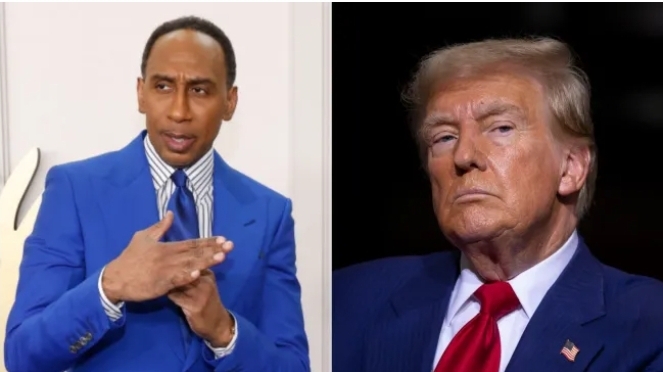
Stephen A. Smith Suggests Donald Trump’s Political Career Is Driven by Revenge Against NFL Owners
Stephen A. Smith, the outspoken sports commentator, recently shared a bold theory about Donald Trump’s political rise, suggesting it may have been fueled by a vendetta against NFL owners. During a discussion on his show, Smith claimed Trump’s grievances with the league’s power brokers might have influenced his decision to enter politics and pursue the presidency.
### The Origins of the Feud
Smith pointed to Trump’s history with the NFL, particularly his failed attempt to purchase the Buffalo Bills in 2014. Trump’s bid was ultimately rejected, with the franchise being sold to Terry and Kim Pegula. Smith argued that this snub added to Trump’s longstanding animosity toward NFL owners, a sentiment reportedly dating back to his involvement with the United States Football League (USFL) in the 1980s.
During the USFL era, Trump’s aggressive push to compete directly with the NFL ended in the league’s collapse, leaving him with unresolved tensions toward the NFL’s leadership.
### A Political Platform
Smith theorized that Trump channeled his frustration with the NFL into his political career, using his presidency as a platform to settle scores. Trump’s public clashes with the NFL—particularly over players kneeling during the national anthem—are cited as examples of this lingering resentment.
“Donald Trump is not someone who takes rejection lightly,” Smith stated. “His political career, in part, has been about proving people wrong and taking on the establishment, including NFL owners who he felt disrespected him.”
### The Broader Implications
While Smith’s remarks are speculative, they highlight the intersection of sports, politics, and personal ambition. Trump’s presidency saw frequent criticisms of professional sports leagues, particularly on cultural and social issues, which some viewed as part of his broader strategy to appeal to his base.
### Mixed Reactions
Smith’s comments sparked debate, with some agreeing that Trump’s history with the NFL might have influenced his actions, while others dismissed the theory as exaggerated. Regardless of differing opinions, Smith’s take adds an intriguing layer to discussions about Trump’s motivations and how personal rivalries can shape public careers.
### Final Thoughts
Whether or not Smith’s theory holds merit, it underscores the complexities of Trump’s relationship with professional sports, particularly the NFL. His history with the league continues to be a point of discussion, intertwining personal, business, and political narratives in a way few public figures have managed to do.

Leave a Reply